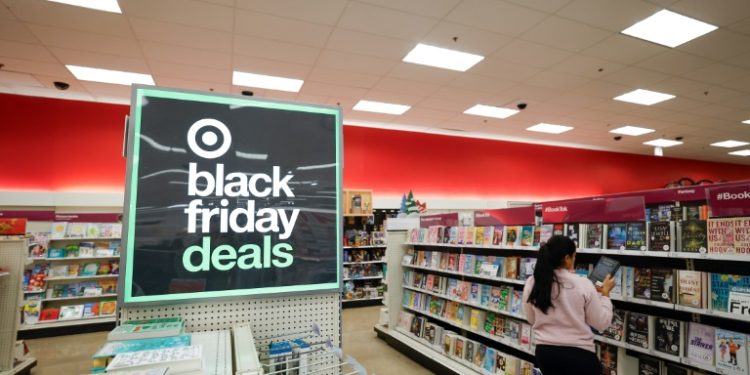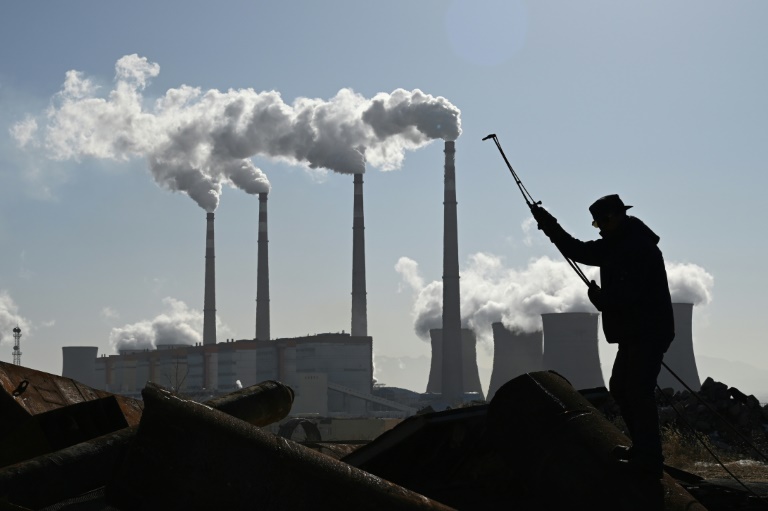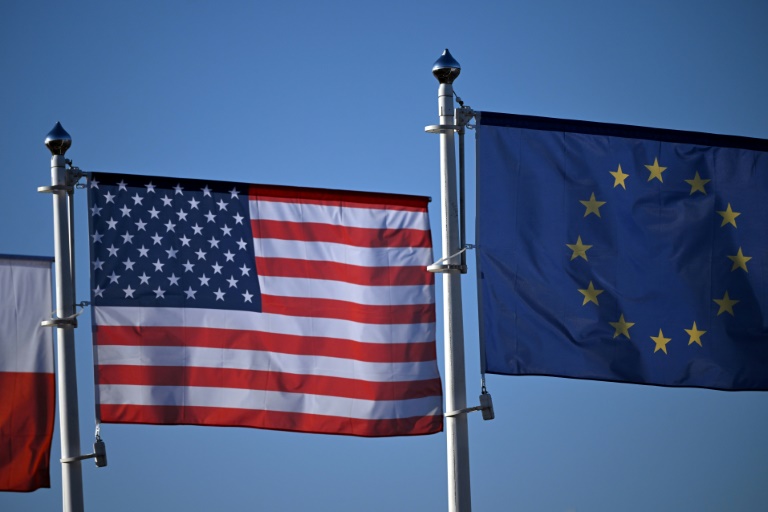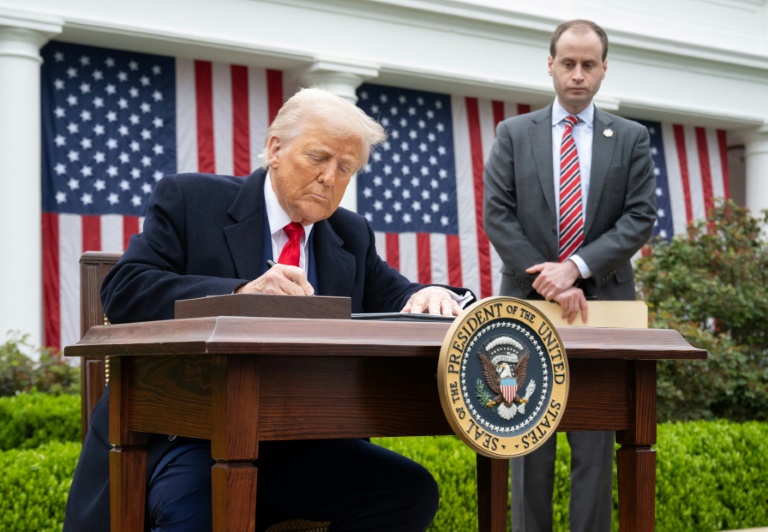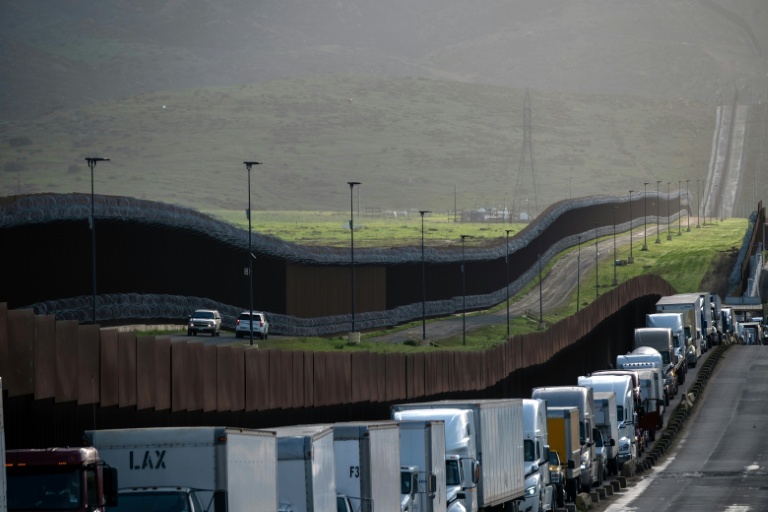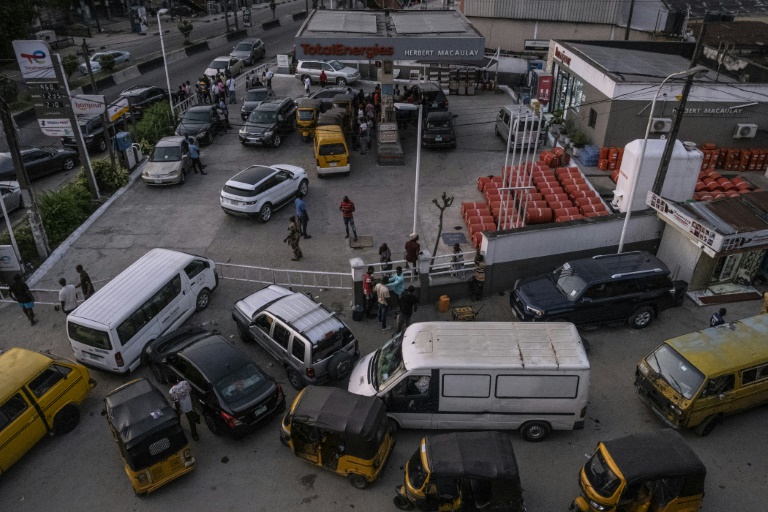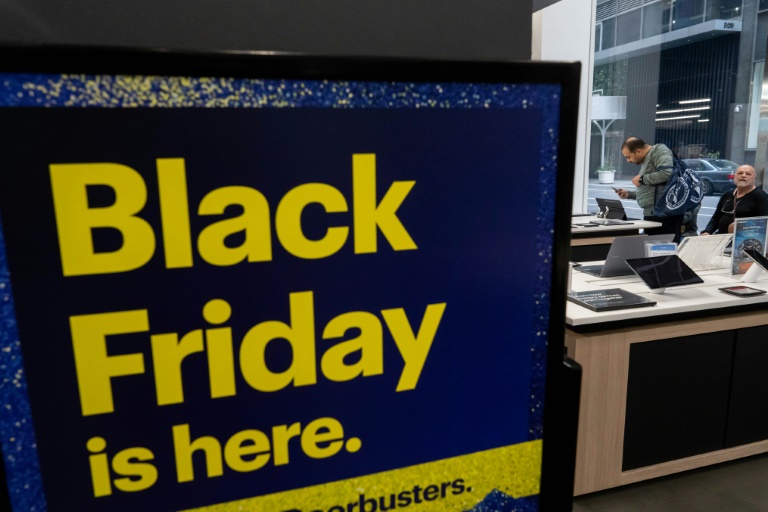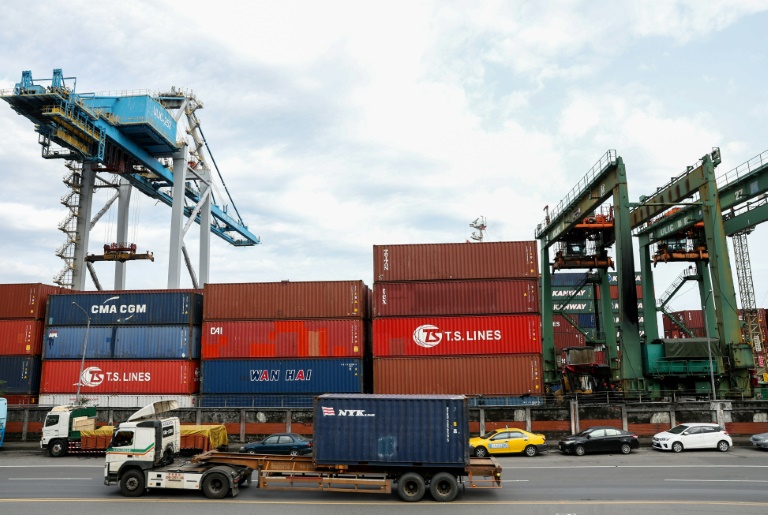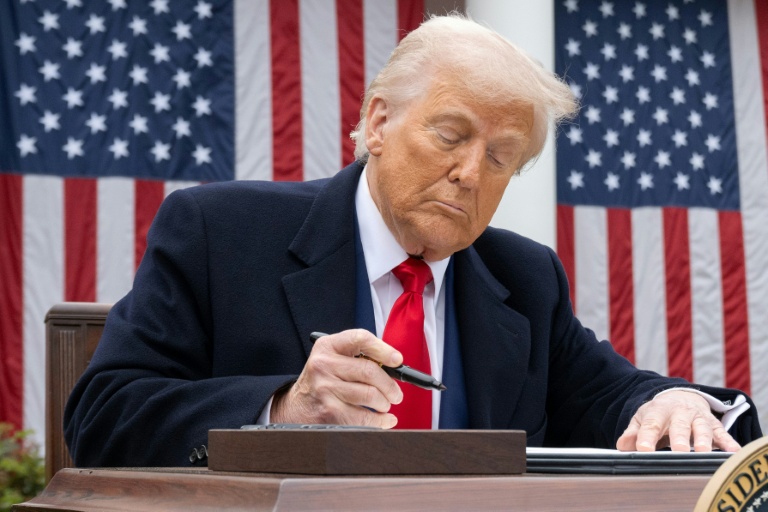New York (AFP) – US shoppers were out in force for “Black Friday,” with preliminary data showing strong online sales despite inflation nerves prompting retailers in the world’s biggest economy to come up with ever more deals. As markets and consumers eye possible turbulence during the transition from President Joe Biden to Donald Trump, there are hopes that the year’s biggest shopping season — stretching from Thanksgiving to Christmas — will be a bonanza.
The National Retail Federation (NRF) said a record 183.4 million people are planning to shop over the weekend, ticking up from 182 million last year and 18.1 million higher than 2019, before the Covid pandemic derailed the global economy. Adobe Analytics said US consumers had spent $7.9 billion online as of Friday afternoon, an increase of 8.2 percent over last year, with a projected final tally between $10.7 and $11 billion — an e-commerce record for Black Friday.
The so-called “Black Friday” discounts day originated as a single day when shoppers poured — sometimes stampeded — into malls in search of incredible deals, but is now accompanied by “Small Business Saturday” and “Cyber Monday.” While inflation has been largely tamed from its post-Covid spike, Americans remain wary, with consumer prices still significantly elevated above their pre-pandemic levels. Beatrice Judon, a shopper “over 75” years old, described the situation as “challenging.” “We hope things get better,” she told AFP after a trip to a department store in the US capital. “We just have to wait and see.”
Holiday shoppers in 2024 are “even more preoccupied and very focused around value and discounts,” said Vivek Pandya, leading insights analyst at Adobe Digital Insights. Discontent with high costs was seen as one of the main reasons Trump defeated Vice President Kamala Harris in the presidential election this month. Target CEO Brian Cornell told analysts earlier this month that after a lengthy period of inflation, “consumers tell us their budgets remain stretched.” “They’re becoming increasingly resourceful in their shopping behaviors, waiting to buy until (the) last moment of need, focusing on deals and then stocking up when they find them,” he said. “It’s pretty expensive to live in America in general,” said Tyler Austin, 25, who was out shopping Friday in downtown Washington for clothes “to upgrade the wardrobe.”
Despite the negative perceptions of the economy, the NRF has projected holiday spending to grow between 2.5 and 3.5 percent over last year, to as much as $989 billion over the two-month period. President Joe Biden did his part to support the US economy on Black Friday by visiting a bookshop on the Massachusetts island of Nantucket, where he is currently on holiday with his family.
The inflationary environment has weighed especially heavily on households with lower incomes, with banks pointing to rising charge-off rates as an indicator of increased stress. But budget-conscious retailer Burlington Stores is seeing some of the strongest sales in low-income zip codes, said Chief Executive Michael O’Sullivan. “Maybe for the first time since 2021, it looks like their real incomes are finally edging up,” O’Sullivan said on a conference call this week.
Wall Street stocks closed higher during the shortened trading session on Friday with the Dow and S&P 500 indexes both hitting fresh records. Thanksgiving, which is always the fourth Thursday in November, falls on its latest possible date in 2024. As a result, retailers are pivoting to a shopping season with five fewer days than last year, which analysts say may be responsible for the outsized early sales.
While Black Friday deals are often targeted at people living in the United States, they also draw tourists and bargain-hunters from abroad. “We came mostly for the experience but we’ve also found some very good deals,” Mario Clemente, a tourist from the Mexican city of Guadalajara told AFP during a trip to a shopping mall in Los Angeles. “Compared to Mexico, it’s much cheaper to come here, even when you add the hotel and the flight,” he said.
© 2024 AFP

